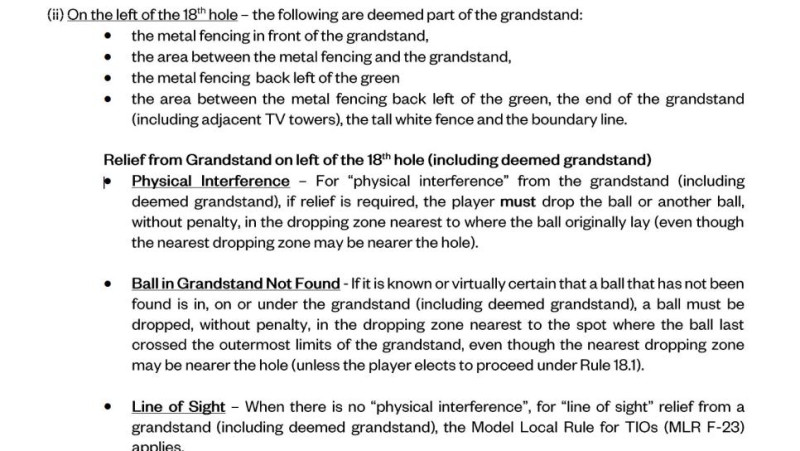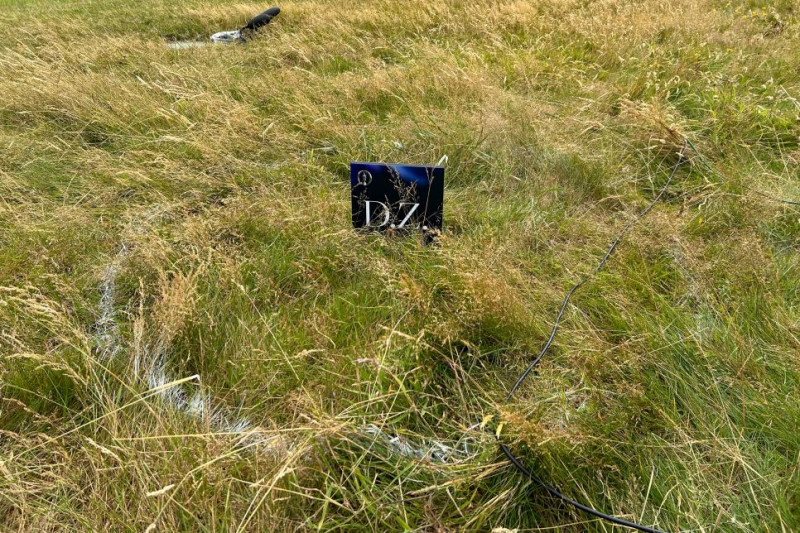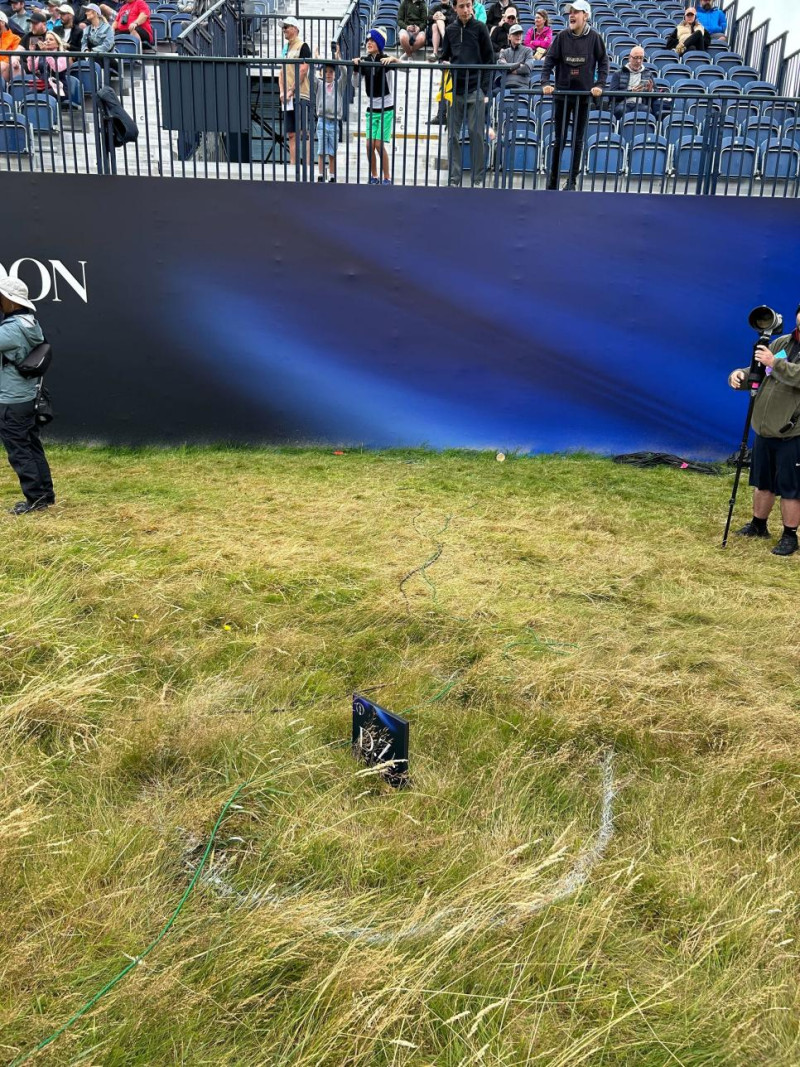TROON, Scotland — Golf Twitter has a long list of sins its users regularly rail against regarding the professional game. Among the favorites: Tour pros getting free relief from grandstands, leaderboards, concession areas and other things deemed “temporary immovable obstructions,” often despite hitting horrific shots that should leave them in penalizing spots only to be allowed to get their ball back into play with little issue and no penalties. It has led to the term “backstopping” joining the golf lexicon in describing a strategy players use to avoid trouble, knowing that they will be OK if they hit a ball into a hospitality tent or food court. (Think Jordan Spieth consciously hitting his ball atop the clubhouse at the Valero Texas Open.)
Players in the field at this week’s British Open are playing under the model local rules that allow for relief from TIOs. But should anyone get any sneaky ideas with their course strategy on the 18th hole at Royal Troon—where out of bounds lurks behind the green—they might think twice about it. At least if they are considering bailing out along the left grandstand toward the green.
In the local rules given to players ahead of the championship, the R&A notes some specific differences with how relief is administered on the 18th hole’s left grandstand. Notably there are five drop zones that have been created that players are required to use should their ball end up in or against the grandstand.

OK, no big deal you say, just play from the drop zone. Well … take a look at the lie you will find in said drop zones.

Pretty healthy, no? Or at least not the short stuff player often find at PGA Tour events. And again, it’s mandatory that players who seek relief use these drop zones as they specifically can’t use the standard drop procedure of taking a club length from the obstruction along this grandstand.
We talked to David Rickman, Chief Referee at the Open, about the drop zones and here’s his explanation for how they’re set up.
“We’re trying to mirror to a large extend the condition of the ground immediately adjacent to the temporary obstruction we’re taking relief from,” Rickman said. “And that’s what we’ve done in this case. We’re certainly not cut them down to fairway height. But they have been improved compared to the immediate area. We’ve looked at the conditioning and pulled out some of the longer grass. We’re trying to strike that balance of where they would go if they were just dropping it from the metal fencing on that left hand side, the rough is quite thick.”

Indeed, the metal fencing that is in place in front of these grandstands specifically—to help with the flow of traffic come Sunday’s final round when the Open will be decided on the 18th hole—is the reason Rickman says the drop zones are in place here and not on the right side of the hole.
“The problem sometimes with the TIO local rule is the geometry sometimes can mean you move a long way along the equidistant arch,” Rickman said. “The benefit of a drop zone is that you more likely at times to keep the shot the person would have otherwise got. Even though it’s maybe five yards closer to the hole it’s arguably a better reflection. So all of these things area in the mix, the condition of the ground around the structure, the proximity of the structure. The complication that would exist … because even rules enthusiasts probably don’t want a 10-15 minute ruling on the 72nd hole of the Open Championship.”
It's only natural to wonder if the R&A has seen Golf Twitter’s fury toward TIO relief and whether the relatively penal drop zones at Royal Troon are a bit of an acknowledgement to that anger. That was a bridge too far for Rickman, although indeed the R&A is listening.
“We’ve certainly see comments that the infrastructure that can be built around a golf course can provide something of a backstop, a bail out, however you want to describe that,” Rickman says. “We’re very conscious of that. But we’re always trying to maintain the integrity of the event when we’re trying to, I suppose, make arrangement so if somebody does hit it into the grandstands where drop zones are marked we give them a fair shot that is a reasonable approximation of what they would have.”
• • •
Is it the British Open or the Open Championship? The name of the final men’s major of the golf season is a subject of continued discussion. The event’s official name, as explained in this op-ed by former R&A chairman Ian Pattinson, is the Open Championship. But since many United States golf fans continue to refer to it as the British Open, and search news around the event accordingly, Golf Digest continues to utilize both names in its coverage.
• • •
MORE GOLF DIGEST BRITISH OPEN COVERAGE
British Open 101: Answering all your frequently asked questions
How to watch the British Open on TV and streaming
Power Rankings: Every player in the field at Royal Troon
Video: Every hole at Royal Troon
How hard can the 123-yard Postage Stamp hole really be? Our deep-dive explantion
Tiger Woods and when enough is enough
History of the claret jug: 152 years of triumphs, dents and lots of drinking
How Brian Harman (aka ‘The butcher of Hoylake’) beat the British tabloids
Rory McIlroy’s media blowoff reignites debate about obligation in the face of frustration
Links golf interactive: What shots you should play on a links course